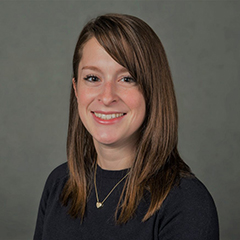Chicago Fieldwork Experiences
Virginia Mason Bio

Virginia Mason, MPH in Maternal and Child Health student, completed her applied practice experience at RefugeeOne, located in the Uptown neighborhood of Chicago. She worked as a Medical Case Management intern, aiding clients in navigating the healthcare system, performing an evaluation of the current Medical Case Management program, creates and delivering culturally humble health workshops centered on reproductive health.
Virginia Mason's Blog
JULY 6, 2018
As I started my internship at RefugeeOne, I did not know what to expect. I have intentionally searched for a field practicum experience that would allow me to stay within Chicago, but also offered me a global opportunity with a focus on women, children, and families. As in both a Global Health and Maternal and Child Health student, I was eager to merge my two areas of interests into a real world experience. The opportunity for the Medical Case Management intern seemed like a great opportunity to do just that! Over the past six weeks, I have learned the power behind the interdisciplinary approach RefugeeOne takes when addressing the needs of their clients. While clients are directly interacting with my department for healthcare needs, other departments are addressing employment, housing, past trauma, immigration, etc. The organization comes together to work on the whole experience of the person in the United States and truly embraces the definition of public health. In addition to observing the way in which RefugeeOne best fits the needs of their clients, I also have experienced the many cultural backgrounds and languages that the team members bring to the organization. While I am still residing in Chicago, I have heard: Spanish, Polish, Arabic, Swahili, French, Farsi, and many more languages within the walls of the organization. It has been an amazing experience to see the knowledge and experience the team brings to their roles. Furthermore, the walls are covered with the many languages of the communities served and photographs of clients within the organization. The entire office space encourages clients to feel represented and welcome. This field experience has shown me the diversity of Chicago in a new way. As I continue my internship, I am working on creating workshops for clients regarding oral health and women’s health. I will be aiming to make the workshop interactive and culturally humble.
Zainab Khomusi Bio

Zainab Khomusi, MPH in Environmental and Occupational Health Sciences ’18, completed her field practicum with Ann & Robert H. Lurie Children’s Memorial Hospital. She worked with the Consortium to Lower Obesity in Chicago Children (CLOCC), supporting the Baby Friendly Hospital Initiative and providing assistance to hospitals in Chicago. She worked with mother/baby and labor and delivery units about best practices relating to breastfeeding and infant care, and evaluated the success of this program with others like it around the globe.
Zainab Khomusi's Blog
Zainab's blog post
This past week I had my orientation. The CLOCC office is housed on Lakeshore Drive, right across Navy Pier. I learned about the Baby Friendly Initiative and the struggles of implementing it. Although the initiative is a positive designation that hospitals should be proud of having, it is difficult to meet all of the requirements and hospitals have to pay to get the designation. This surprised me, but I realize it costs money to create online resources for hospitals to use and for auditors from the program to visit a hospital. I also realize that what may be thought of as a great public health program, in theory, faces unexpected roadblocks with implementing it.
.

I learned about the discrepancy between hospitals within the Chicagoland area. Hospitals that serve an affluent community may choose not to have the Baby Friendly Initiative because one of the requirements is for the newborn baby to be kept in the room with mom. It is more common for affluent hospitals to have nurseries to keep newborns in so that the moms can rest. I found this to be an interesting social determinant. Being baby friendly is not something I would consider to be different according to socioeconomic status, but it is.
I also learned a little bit about differences among ethnicities. Part of being baby friendly is to educate moms about the benefits of breastfeeding. It is commonly known that new mothers do not produce a lot of milk right after birth, but this is okay because when a baby is born their stomach is the size of a marble (so tiny!) and the amount of milk a mother produces is sufficient. However, mothers from some cultures feel that they are not able to give their baby the milk they need, and therefore supplement breastmilk with formula. This can lead to over feeding the baby.
.

I found it very interesting about the challenges in implementing a public health program based on social determinants like socioeconomic status and ethnicity. I am super excited about visiting and interviewing mothers this week to get a first-hand understanding about the challenges they face and questions they have about feeding their babies.